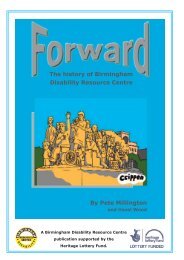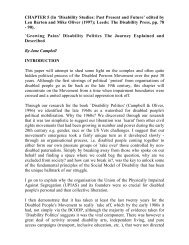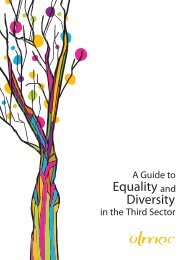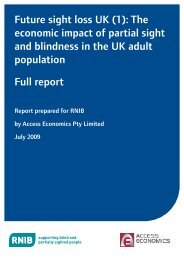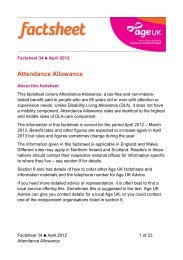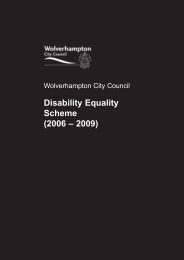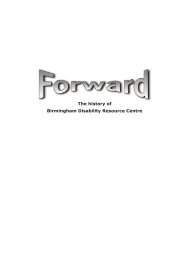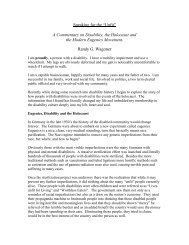What equality law means - Birmingham Disability Resource Centre
What equality law means - Birmingham Disability Resource Centre
What equality law means - Birmingham Disability Resource Centre
You also want an ePaper? Increase the reach of your titles
YUMPU automatically turns print PDFs into web optimized ePapers that Google loves.
Dealing with the complaint<br />
If the complaint is about the way you or your organisation does something, think about<br />
getting it changed.<br />
Make sure you tell the job applicant what the result of their complaint is, otherwise they<br />
may bring an Employment Tribunal claim.<br />
<strong>What</strong> you can do if you find that there has been<br />
un<strong>law</strong>ful discrimination<br />
The action you take will depend on the specific details of the case and its seriousness.<br />
You should take into consideration any underlying circumstances and the outcome of<br />
previous similar cases. Actions you take could be:<br />
• Equality training for the person who discriminated.<br />
• Appropriate disciplinary action (you can find out more about disciplinary procedures<br />
from Acas) against the person who discriminated.<br />
Monitoring the outcome<br />
Whether you decide that there had been un<strong>law</strong>ful discrimination or not, make sure that<br />
you do not treat the person who complained badly. For example, making sure the person<br />
is not shortlisted on any future job applications would amount to victimisation.<br />
If the job applicant is not satisfied with what has happened, they may decide to bring a<br />
claim in the Employment Tribunal.<br />
The questions procedure<br />
If a job applicant thinks they may have been un<strong>law</strong>fully discriminated against, harassed or<br />
victimised against <strong>equality</strong> <strong>law</strong>, then they can obtain information from you to help them<br />
decide if they have a valid claim or not.<br />
There is a set form to help them do this which you can access at:<br />
http://www.equalities.gov.uk/news/<strong>equality</strong>_act_2010_forms_for_ob.aspx,<br />
but their questions will still count even if they do not use the form, so long as they use the<br />
same questions. The form is sometimes called a ‘questionnaire’.<br />
If you receive questions from a job applicant, you are not legally required to reply to the<br />
request, or to answer the questions, but it may harm your case if you do not.<br />
The questions and the answers can form part of the evidence in a case brought under the<br />
Equality Act 2010.<br />
71




